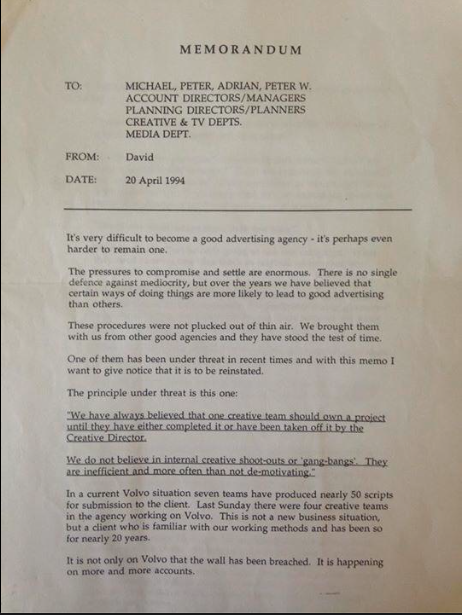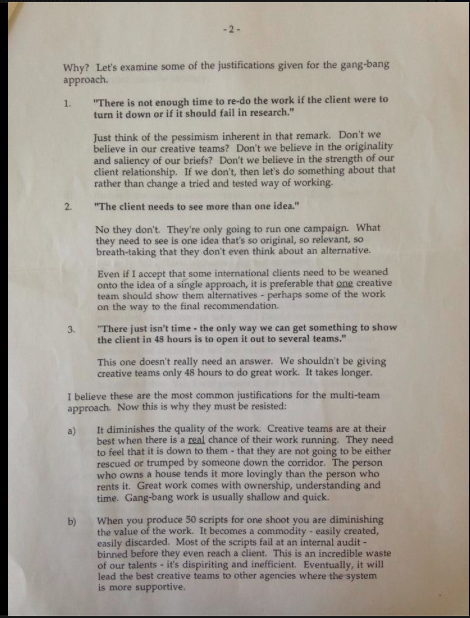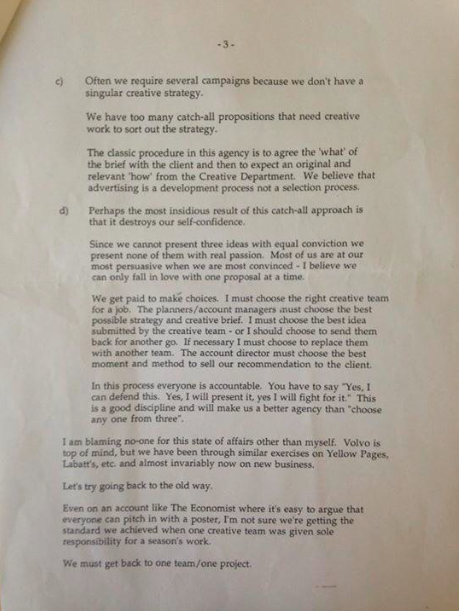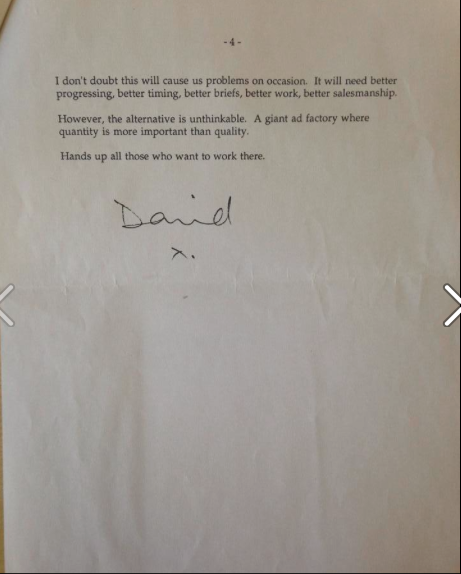I can take a phrase that’s rarely heard, flip it, now it’s the weekend
What it takes to be a London cabbie (thanks, D).
How the music of Pulp Fiction happened (thanks, A).
Soderbergh messes with Raiders of the Lost Ark.
Fun addictive colour game (thanks, P).
Questionable kids’ books (thanks, J).
How did Robert Zemeckis film the opening of Back to the Future?
Slow motion tattooing:
Oh, what fee-eeling, when you’re dancing on a… wall:
The fascinating story of how The Shawshank Redemption came about.
The real Jiminy Glick is dead
I don’t know when I first became aware of Jiminy Glick, but I do recall I used to weep with laughter at whatever JG clips I could find back in the early 2000s:
If you enjoy his work as much as I do there are plenty more clips on YouTube
Anyway, I hadn’t thought of Jiminy in a while, but then I discovered that the man he was based on has just died. Apparently a guy called Skip E. Lowe used to interview people like Orson Welles, Bette Davis and Tony Curtis in school community centres using his own equipment. How very odd:
https://www.youtube.com/watch?v=DMYz-snQrWI
Being poor seems like a right arse
I’m not poor and I never have been.
The closest I’ve come to the breadline were those times at school or university when my pocket money, or Prêt a Manger wages, couldn’t stretch to another comic or pint.
So I’ve been very fortunate that I’ve never felt hunger that I couldn’t quell by choice; I’ve only received final demands because I wanted to go to the movies when the earlier bill came in; my kids have always been fed, clothed and allowed to experience all the books and toys they could wish for.
Lucky me.
But I’ve always had this nagging feeling that my circumstances have not quite been available for everyone else. Those less well-off than me seemed to fill up Camden High Street every Saturday afternoon, but I walked past them with only the slightest idea of who they might be or why their trainers didn’t have a logo on the side. Yes, I regularly give £20/$20 notes to the homeless (my version of trickle down economics), but I’ve never really considered how they got there, or how difficult they might find it to change their situation.
Which is why I felt privileged to read this article. It’s a fantastic piece, written by a lady who has experienced the numbing, debilitating grip of everyday poverty. She’s not complaining; she’s just laying out the realities of how and why she, and millions like her, live the way they live.
Coincidentally it turned up in my Twitter feed around the same time as this:
Now, I’m not saying we should react as Russell Brand does, but if you’d like a perspective into the way many people regard the poor in western society, watch the Fox News parts of that clip.
Where am I heading with this post? Down a cul-de-sac, really; I don’t know what to do to really help, especially when the ever-expanding range of problems currently faced by society is paralysingly colossal. But I just thought I’d put this stuff out there. Maybe you have a solution that you could share with us, or maybe you’ll feel a bit more generous next time you walk past or talk about a person who is not as well-off as you are.
Meanwhile, come on the guy who waits by the traffic light at Laurel Canyon Blvd; I have a $20 bill just for you.
Probably the best advertising memo ever written
(Via Shaheed @ The Creative Floor.)
I’ll just add that when I arrived at AMV in 1998 it was still one team one brief (in contrast to my previous agency, Y&R, where it was as David describes above). I was amazed and delighted for all those reasons.
It worked very well until it changed.
On paper vs on the air
I f you’re an advertising creative (or a scriptwriter of some sort), you will at some point have to produce an ‘idea’ on a piece of a paper, which is then intended to convince lots of clever people that it would be a good TV ad.
So far so obvious, but the process of how a ‘good’ script becomes a good or bad ad, or how a so-so script can become something great is rarely discussed.
I’m aware of a script that said as little as ‘People rub themselves in Levi’s jeans’ that was not only approved all the way up the chain at BBH, but was also taken on by Frank Budgen and shot (here’s the result). I don’t think that script made a classic Levi’s ad, despite the fact that it was Fred and Farid + BBH + Levi’s (when they made excellent ads) + Frank in his prime. But was it a good script? Was the massive free rein the right thing to do? Or was it actually a bit crap and lazy, resulting in an ad to which you could apply similar adjectives?
I heard recently that the same thing happened for a classic Orange ad in its early WCRS days: ‘Just shoot some kites’. I seem to remember that a VO went alongside that, elevating it from the dullness of 60 seconds of nicely-shot kites, but maybe that was a good brief to give a ‘visual’ director. Plenty of ads have no real narrative, so why pretend to have one when you don’t?
Then again, what about great scripts that have produced poor ads? They’re harder to come by, obviously, but I’ve definitely heard the phrase ‘every director in town is after this one’, or ‘Frank’s pitching against Danny’, only to see a rather underwhelming 60 seconds at the end of the process.
Of course, many things can go wrong (or not right) during the process, leaving your ad without the great track, cast member or editor who might otherwise have sprinkled the requisite fairy dust over the production. And the opposite can happen, with a brilliantly chosen bed of sound design or series of beautifully-lit shots elevating something that would otherwise have been humdrum. But at the end of the day you have to fill a sheet of A4 with the right words to get your ECD interested, the client to put his hand in his pocket and the production bods excited enough to take it on and bring their A game. Without that you don’t even get the chance to beef it up/fuck it up with the later decisions.
So have you been surprised by your own B- script turning into an A+ ad? Or vice versa? Have you seen the shiteness of others become miraculously brilliant because you weren’t able to see the hidden diamond that only a great ECD or director could spot? Have you watched an ad on TV, considered the script it must have come from, and thought ‘how the fuck did that ever get made’?
Open on a slightly bored creative, scratching his head…
We left you in pastures rarely seen (holding out the fortress for a while). Everyone knew why the calm had been (keeping friends among you saves a fight). In the dead of the night there was the weekend.
What it’s really like casting Bill Murray (thanks, J).
Best screenwriting blogs (thanks, J).
And the best screenwriting books (thanks, J).
More great books (thanks, M).
Upside-down portraits that look like aliens (thanks, A).
Kanye orchestrates:
YOLO 2 (thanks, J):
Film data (thanks, J).
The homeless Casanova (thanks, J):
Watch this guy race a tube train (thanks, J):
So much great North By Northwest stuff.
Rush Hour (thanks, J):
Nerd raps in the hood (thanks, J):
Improve your Netflix queue (thanks, J).
Art we can all appreciate (thanks, Y).
An app that fills a hole in the quantified self (thanks, H/M).
Genetics, and what they mean for compassion, capitalism and a shitload of other very interesting stuff.
Archives




